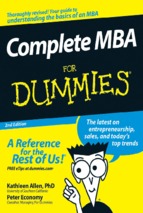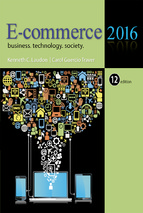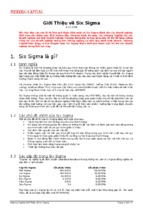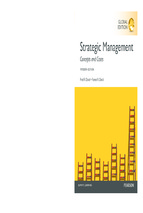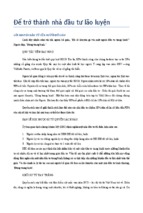The Thoughtful Leader
First published in 2015 by
Panoma Press Ltd
48 St Vincent Drive, St Albans, Herts, AL1 5SJ, UK
[email protected]
www.panomapress.com
Book layout by Neil Coe.
Printed on acid-free paper from managed forests.
ISBN 978-1-909623-93-4
eISBN 978-1-784521-75-2
The right of Mindy Gibbins-Klein to be identified as the author of this work has been asserted in accordance with
sections 77 and 78 of the Copyright Designs and Patents Act 1988.
A CIP catalogue record for this book is available from the British Library.
All rights reserved. No part of this book may be reproduced in any material form (including photocopying or storing in
any medium by electronic means and whether or not transiently or incidentally to some other use of this publication)
without the written permission of the copyright holder except in accordance with the provisions of the Copyright, Design
and Patents Act 1988. Applications for the Copyright holder’s written permission to reproduce any part of this
publication should be addressed to the publishers.
This book is available online and in bookstores.
Copyright 2014 Mindy Gibbins-Klein
Dedication and Acknowledgements
This book is dedicated to the many talented and generous mentors who have guided me
on my path, and to the many clients, colleagues and friends I’ve made along that path.
Thank you so much to the following people for all the help, support, encouragement,
inspiration, friendship, and patience. It’s not an exhaustive list, and I’m sure I’ve forgotten
important people, in which case I’ll be groveling and making it up to you. I’ve made this
list alphabetical so there’s no need to read too much into the order!
Dawattie Basdeo
Sandi Klein
Alison Baugh
Gail Maisel
Tim Bean
Rob Maisel
Dan Bradbury
Karen Mena
Rob Brown
Chris Merrington
Neil Coe
Penny Power
Jenny Garrett
Thomas Power
Bradley Gibbins-Klein
Daniel Priestley
Taz Gibbins-Klein
Tony Robbins
Phil Gibbins-Klein
Adrian Savage
Seth Godin
Tony Selimi
Andi Grant Edwards
Zoe Socrates
Emma Herbert
Mike Southon
Philippa Hull
Anthony Stears
Kate Keenan
Alan Stevens
Tiffany Kemp
Barnaby Wynter
CONTENTS
Introduction
Chapter 1 The REAL Leader’s Current Challenges
Chapter 2 Moving From “Compete” to “Complete”
Chapter 3 Winning by Thinking
Chapter 4 Improving the Quality of Your Thinking
Chapter 5 Positive Intention Leads to Positive Impact
Chapter 6 How to Be a Centerpreneur
Chapter 7 Making Milestones Matter
Chapter 8 The Thoughtful Leader Takes Risks Thoughtfully
Chapter 9 Being Truly Thoughtful (thinking of others) – Baring, Sharing and Daring to Care
Chapter 10 You Can Learn to Care
Chapter 11 Thinking Bigger
Conclusion
About the Author
Introduction
Leaders have to deal with a multitude of challenges: maintaining a vision that others
can follow, setting the pace and tone for the business or business unit, and in many cases
managing people, budgets and conflicting agendas and priorities. Inspiring others is
usually found at the bottom of the list, in the “nice to have” category, as long as everything
else is handled. However, deep down, most leaders would like to be more inspirational.
Perhaps to be what is called a “thought leader”, if that is not too lofty a goal.
Thought leadership has become part of the business vernacular, but it is such an
overused term that it really has begun to lose its meaning. Most of what is published or
presented as thought leadership is nothing of the kind. In my book 24 Carat BOLD, I
presented a model whereby aspiring thought leaders could create a strategy, measure their
effectiveness and do specific things to share their best ideas and become recognized for
them. Since then, I have shared that model in presentations, training and coaching, with
thousands of business owners, executives and aspiring thought leaders. It still works as a
framework for assessing and developing your own thought leadership.
When Seth Godin called 24 Carat BOLD “the first thoughtful book I’ve seen on what it
means to become a thought leader” it did not occur to me that the word “thoughtful” was,
in fact, the key to the entire concept. Six years later, I have found myself coming back
over and over again to the idea of “thoughtfulness”, and recently realized this completely
encapsulates my current thinking. It is what I care about most (and as you will learn in this
book, caring counts for a lot!), it is what I do and what I am really interested in doing for
the rest of my life: encouraging thoughtful leadership.
Being bold and exhibiting the attributes of REAL thought leadership are certainly
important, and working with the REAL model can give you clarity and raise your profile.
Practicing thoughtful leadership goes much further and allows really special people with
really special ideas to be seen and appreciated.
Before we begin, let me be very clear about what I mean by thoughtful, since there are
several meanings. Here are some dictionary definitions of the word thoughtful:
thoughtful (adjective) [thawt-fuh l
1. showing consideration for others; considerate.
2. characterized by or manifesting careful thought: a thoughtful essay.
3. occupied with or given to thought; contemplative; meditative; reflective: in a
thoughtful mood.
4. careful, heedful, or mindful: to be thoughtful of one’s safety.
Thoughtful Leadership
What we can see is that there are two main meanings of the word thoughtful. One has
to do with thinking and the other pertains to consideration for other people. In other
words, one has to do with the head, and the other with the heart. I thought it was important
to explore both of these concepts fully in this book because a thoughtful leader embodies
and exhibits both of these skills.
Each chapter has a short title and an inspirational quotation to set the mood.
Inspirational quotations are great because they capture important thoughts succinctly and
often cleverly. They also tend to go viral. One of my dreams is that my best sound bites
are shared widely, that they “go viral”. But as you will learn in this book and my other
material, going viral is not random, nor is it an accident. You have to put really exciting
ideas out in a simple and shareable format.
Therefore, the first paragraph of each chapter (sometimes just the first sentence) is the
core message or “thought” of that chapter. This is a discipline I teach my clients, and I
absolutely wanted to practice what I preach. Besides, putting the book together in this way
ensured that I had the clarity of thought before launching into the full explanation of each
idea.
It also means that if you are short on time, or have an attention deficit disorder, you can
grasp the essence of each chapter quickly. And if you like the thought for that chapter, you
have something interesting to tweet! I have also placed my favorite sound bites in easy-tospot boxes, called Thought Bites, so feel free to tweet them, ideally crediting me at
@MindyGK.
Being somewhat involved in the book world, I know the trend is for shorter books, and
I have aimed to keep this book as short as possible, while still covering all the key points.
If you are seeking more in-depth information and discussion on any of these points,
simply get in touch with me. I’m very easy to find online, and happy to speak to people
offline – by phone or in person – as I travel around the world sharing these ideas. I look
forward to hearing from you! This information is repeated at the end of the book, for ease
of use.
Connect with me:
My websites:
www.thethoughtfulleader.com
www.mindygk.com
www.bookmidwife.com
www.panomapress.com
LinkedIn:
www.uk.linkedin.com/in/mindy.gibbinsklein
YouTube:
www.youtube.com/user/bookmidwife
Twitter:
www.twitter.com/bookmidwife and www.twitter.com/MindyGK
Facebook: www.facebook.com/mindy.gibbinsklein
Phone numbers (what a novel idea!):
UK +44 (0) 8345 003 8848 or USA +1 (855) 883-1202
Chapter 1
The REAL Leader’s Current Challenges
“Self-worth comes from one thing - thinking that you are worthy.”
Wayne Dyer
Who on earth would sign up to be a leader? It is fraught with challenges and offers no
guarantees. The balancing act of being responsible for other people’s livelihoods and
welfare, as well as achieving business targets, working more hours than ever, in an
increasingly stressful environment and society… it’s madness. However, the glory of
building something important, something to be proud of: that’s the thing that keeps most
entrepreneurs, executives and leaders going. If you are a leader today, getting the balance
to work in your favor is key, and keeping yourself strong and confident is the first step.
The leader’s confidence must be protected
Just about every leader and entrepreneur I’ve met, underneath their successful façade,
has a pretty fragile ego. Their sense of self-worth tends to be attached to their business,
their idea or their success, especially if they started the business or built up the department
or business unit. I began to suspect that under the surface, a lot of fear and doubt still
existed, and I had some interesting conversations over the past few years.
Then I conducted a survey with a wider group, to see if my suspicions were correct. I
found that although people still felt creative, a surprisingly large number of business
owners, more than half, after two years in business, were less confident about success and
less happy than when they started and more than half were occasionally or regularly
thinking of quitting because it was not working out.
Do you feel more or less confident and happy than when you first started your
business? Answer this question honestly, even if you never share the answer with anyone
else. If things are not going the way you want with your business, you can begin to shift it
in any direction you choose, starting right now. Drop anyone else’s measure of success
and assess your real feelings. If your own sense of self-worth has started to take a hit, it’s
just that you are so intimately linked with the business and you may have forgotten that
your ego does not have to be in charge. In fact, if you overcompensate and lead with your
ego, you may appear arrogant and actually push success away.
Much has been written about ego or arrogance, and many people criticize and condemn
those who seem to exhibit an overabundance of it. It tends to show up as approvalseeking, where someone constantly looks for validation for their actions and their
achievements. If you take the time to look into this phenomenon – either in your own
behavior or that of others – you will soon discover the reasons behind it.
Insecurity comes from fear of not being enough and fear of not being loved. Tony
Robbins talks about these two fears, which are apparently at the root of every other fear
we have. This means that many people worry about not being good enough or loved
enough. When you are in charge of a business or team, you can feel afraid of failure
because it will reflect badly on you and your leadership skills. You may also be worried
about the effects failure could have on others who depend on you for their livelihood. If
you do not have any staff, it tends to be the former.
Excessive attention-seeking is very different from self-worth. People with high as well
as low self-worth can both come across as needy and desperate for attention. Having been
involved in professional training, speaking and coaching organizations for the past ten
years, I have met many individuals who like to talk about themselves and what they do.
Some, unfortunately, go too far with it, making them look desperate.
One of the authors I published several years ago was always promoting himself and his
book online. Self-promotion, as you will read about later in the book, is important to let
your market know what you do and what you offer. However, it can be overdone and upset
people. In the case of this author, I tried to coach him on having a balance and creating
other messages, so not every communication was promotional in nature. But he
consistently overdid the self-promotion. No one else said anything to him about it, so he
thought I was just being overcautious. I could look at book sales and social media
engagement, and I could read between the lines of other people’s comments. This guy was
hurting his success by appearing overanxious and desperate. The more he boosted his own
profile, the more people pulled away. A mutual friend confided in me that they had to
unfollow and disconnect from my client’s profiles because it was all getting too much.
What if that were you? How would you feel if people were actively trying to avoid you
and your endless boasting and bragging? Have you seen people constantly promoting
themselves, their work and their business, without adding valuable content? Maybe they
are just trying to become the top dog and they don’t know the best way to go about it.
Top Dog Syndrome
You may have heard of the expression “top dog” in either a positive or negative
context. In fact, my good friend Andy Bounds has just come out with a new book called
Top Dogs (co-authored with Richard Ruttle), which shows how to negotiate and deal with
people in power, and avoid becoming an underdog in your communications! The book is
specifically about power games in communications, but what I’m talking about is when
people go too far, or become obsessed with achieving top dog status, at any cost.
So let’s talk about dogs for a moment. Dogs mark out their territory by urinating on it.
That’s a nice image for you, isn’t it? So, if you want be a top dog, you will need to lift
your leg – metaphorically speaking. Personally, I think there are better ways to shine and
succeed with your personal gifts and talents. Some people make a habit of elbowing
people out of the way, trying to make others look bad, stepping all over them on their way
to the top. I saw a lot of this when I worked in the corporate world, and it didn’t give me a
warm and fuzzy feeling.
Thought Bite: If you want be a top dog, you will need to lift your leg @MindyGK
I don’t think you need to lift your leg to get to where you want to be. But you do
probably need to put one foot in front of the other and take a few steps, perhaps in a
different direction. You will see what I mean as we go through the strategies in this book.
Sticking with the dog metaphor for a moment, I’d like you to consider the behavior of
dogs in packs. Most of the dogs are happy to follow the lead dog, and they don’t always
get the chance or even want to be the lead dog. I spoke about this a lot in 24 Carat BOLD.
It’s OK if you don’t have a great desire to be a leader with lots of followers. This book is
intended to inspire you to be a better leader of yourself and those in your immediate
sphere of influence. If you choose to expand that, it’s up to you. But don’t let anyone tell
you there is something wrong with being part of the pack.
One final example using dogs, then I promise we will spend most of our time talking
about humans. What happens when a dog has been kicked too many times? When a dog
has been kicked over and over, it usually begins to flinch and run away when it perceives a
new threat. The learned response comes from having been treated badly. If you have tried
to succeed and failed, or things have not worked out the way you thought or desired, it
may be tempting to give up and not try again.
Thought Bite: Don’t let anyone tell you there is something wrong with being part of the pack @MindyGK
However, you may just want to picture a Golden Retriever as he steps out of a lake,
gives himself a shake (spraying water everywhere) and looks for his next adventure. If
you’re going to be a dog, this is a good one to model.
Putting people on a pedestal
Many people believe that others really are better, or better off, smarter, happier or just
plain luckier than they are. Those beliefs may or may not be true, and maintaining them
and holding others up can actually keep you down. I’m not suggesting you shouldn’t
admire people who have achieved great things. They can inspire you and act as role
models, proof of what is possible. Just be aware of any tendency to dwell too long on
other people.
My mother has always said don’t envy or wish you were someone else, you’d have to
take their whole life, everything about it, good and bad. And we really have no idea what
others are going through. We compare ourselves to others, and even when we think we are
better than the other person, there is always that feeling that we could be overtaken.
In my line of work, I see a lot of aspiring authors and speakers. The ones who spend a
lot of time looking at and envying others miss the point. The point is that the other
entrepreneur, speaker or author had their own challenges and route to get where they are
today. They also have things going on in their lives that they don’t share widely, or
actively hide. Such as financial worries, personal relationship problems, health
challenges… the list goes on.
Be careful about comparisons in general, since they are often fraught with assumptions
and misconceptions. We will discuss this in more detail in the next chapter.
Putting yourself on a pedestal
Social media and the Internet in general have a lot to answer for, making it acceptable
and even encouraging people to “big themselves up”! I cringe when I look at a business
professional’s LinkedIn profile and it says “Expert”, or even “Guru” (yes, really!), or
“Thought Leader”. We all know the person crafted that profile themselves, so they are
claiming to be those things. Self-proclaimed thought leadership is discounted by the
people who are subjected to it, and many times it would not meet the definition of thought
leadership at all.
Now, perhaps I am partly at fault for speaking and writing over the past six years about
being a thought leader. Many people have read my book 24 Carat BOLD and felt inspired
to claim their position as a thought leader in their space. However, at no point did I ever
give people permission, or even encourage them, to call themselves thought leaders!
Think about it. It’s like walking up to someone and saying, “I’m great. Look how great I
am. Look how special I am.” You just wouldn’t do it. At least, I hope you wouldn’t do
that.
Thought Bite: Self-proclaimed thought leadership is discounted by the people who are subjected to it
@MindyGK
One of my authors, Julia Felton, is a sincere, hardworking leadership development
coach and trainer. She runs equine inspired leadership programs, where people learn about
themselves and improve team dynamics by working with horses. Her award-winning
experience and her book Unbridled Success have raised Julia’s profile and resulted in
work with leaders in different countries. A reader in Japan was so impressed with the
content of the book that she flew to the UK to work with Julia personally!
Despite being excellent at what she does, Julia remains humble and even a bit
understated. Maybe it’s all the time spent with her horses… Seriously, I wanted to
showcase Julia here since she deserves it and doesn’t do too much promotion herself.
Where would you put yourself on the self-promotion scale?
If you don’t know how you appear to your clients or your market, perhaps it is time to
do a survey where people can tell you what they think of you and the way you come
across. I’d recommend you let them answer the questions anonymously.
Chapter 2
Moving From “Compete” to “Complete”
“Thousands of candles can be lighted from a single candle, and the life of the
candle will not be shortened.”
Buddha
Several years ago, I did a presentation called “Don’t Seek Unique” which touched on
many of these themes and asked people to stop worrying about what everyone else was
doing. An executive came up to me after the talk and said he had never even considered
not comparing himself to others, and that competitive research and market research were a
major part of how his business operated. But he was excited about trying something
new…
In 24 Carat BOLD and many of the talks I give, I compare running a business and
building a brand to running in a race. You have your own race to win, but you may be
tempted to look around you, ahead of you and even behind you, to see what others are
doing. It can be motivational, but it can also distract you from the business of running
your race, and it can even trip you up.
A particularly relevant “race” occurs for many of my clients on a daily basis. It’s called
Amazon rankings. Over the past few years, it has become almost de rigueur to aspire to
become an Amazon “‘bestseller”. Amazon encourages this by ranking all books on their
sites. The emphasis on bestseller status has skewed the real picture and has led to all kinds
of gamification, which even my clients have engaged in, just to get to that Number 1 slot.
With Amazon regularly updating the rankings, checking can become an obsession,
causing authors to lose sleep, agonize over the number, and even embarrass themselves
with too much online promotion and communication. And all the while, the ranking is
getting diluted and devalued, as more and more authors compete in this game.
As much as I understand this is a trend and even a marketing strategy now, and as I
said, we do participate in it when the author really wants to (I will probably do a few
campaigns for this book, in fact!), I still encourage my clients to focus on “best book”
rather than “bestseller”. I mean, if you put out any old content, you can get it to the top
with marketing strategies, but once people start reading it and critiquing it, the real value
of your content will be obvious to the world. It’s not just about the numbers. If you focus
on creating the best book – and by book I mean all your content – then you will improve
your chances of becoming an organic bestseller and a highly respected thoughtful leader in
the process.
Looking at your book ranking (or your Alexa ranking, Klout score or any other
measure, in fact) all encourage a focus on comparison, and even a seasoned thought leader
or author’s feeling of self-worth can rise and fall like the tide.
Is it really true that there can only be one winner? No! There’s lots of room for lots of
winners, each adding value in their own way. We do not really compete. But sometimes
when you see someone else in your industry doing well, it can feel like you have been
stabbed in the gut, like someone has taken what is yours and given it to someone else.
Taken food right out of your mouth, especially when you have bills to pay and you find
out that the client you were counting on has decided to work with someone else.
Actually, it doesn’t usually take anything away from you when someone else does well.
Even in the most competitive industries, hundreds and thousands of similar businesses
survive. So why this need to be the only one? In part it is societal conditioning, and in part
it is psychological. Let’s explore both of these areas in more depth.
Success is a double-edged sword
Here is a common leadership story. You set out to become successful. You work really
hard, you build your reputation, you do good work and put out great content. You become
a leader in your organization or industry. You then look for the next challenge. Perhaps
you need something bigger, and you certainly need to protect your current achievement.
The pressure builds. You need more and more success, more and more recognition. You
have more to lose, farther to fall. You feel you can’t afford to fail; everyone is watching.
Before you reach the heady levels of success, you want to be seen and heard. Everyone
tells you that’s the goal. Be seen and heard. Be visible and vocal. Be the thought leader.
However, in the quest to achieve thought leadership requires you to stand out. Many
authors, including me, have written about standing out, making your mark and being a true
thought leader.
But there is a paradox between wanting to be special and unique, and at the same time
wanting to fit in with a community and be accepted. We do like to feel special and unique,
but very few people want to be so different from everyone else that they have no one to
whom they can relate or with whom they can build trusted relationships. So we seek
common ground. We don’t want to lose those connections. So the thoughtful leader spends
time balancing these two aspirations, and often teeters on the continuum.
Discontentment
The same goes for the continuum between contentment and discontentment. There is
nothing wrong with being discontent with the way things are and striving to change and
improve your situation, your results and even the world. Discontentment creates a starting
point for change. It is the sand or grit that can start to form the pearl in the oyster.
What have I done for you lately?
There is one more interesting dichotomy for leaders today. It involves the internal battle
between our selfish, self-centered tendencies and our desire to be more collaborative and
abundant. One of the best ways to achieve both is to look for ways to collaborate that
benefit you or your business. Referring noncompetitive business to other colleagues puts
you in a great position – the position of “giver” – and creates a desire in the other person’s
mind to pay you back in some way. Having been a director of BNI, the world’s largest
referral organization, I am a big believer in actively looking out for and giving referrals to
other people. I am not going to elaborate on referral techniques here; for in-depth
information, look up books and other resources from my good friends and clients Charlie
Lawson (author of The Unnatural Networker) and Andy Lopata (author of several books
including And Death Came Third and Recommended!)
What I do want to stress here is that you need to be seen as a helpful referrer or
introducer. Really look for the best person or company to serve your client, if you can’t be
the one to get the business. Only refer one person or business to meet the need. There’s
nothing worse than receiving a referral where you are immediately competing with
another person or business, simply because the introducer named both of you, as if you
were equal (which you are not). When referring business, the thoughtful leader takes the
extra time and care to refer only one company, the best one for the client.
As I mentioned in the Introduction, the word thoughtful has two meanings: one has to
do with putting thought into something, and the other has more to do with caring. What I
didn’t mention earlier is that I am a fluent speaker of Spanish. It is my second language,
and I sometimes call myself bilingual. Why am I bringing this up now? Because in
Spanish there are two separate words for the word thoughtful. Many other languages make
the distinction also. It’s only English that tries to use the same word for these very
different concepts. However, in this case, it works in our favor, since leaders today can
achieve a blend of both for an even more successful outcome.
With the amount of noise in the form of millions of blogs, videos, articles, posts and
even books, what is needed now more than ever is good quality thoughts and ideas – real
thoughts. Ironically real thoughts are often the missing component in what is called
“thought leadership”. No real thought goes into it.
Does the thoughtful leader always get it right? No. But they have the right intention and
are willing to try again and improve the quality.
You can teach people to think. You may think this happens at school, but I am talking
about real analytical thinking, philosophical thinking, critical thinking.
Up until recently, I thought the Internet and the ease with which you can find
information and answers was a good thing. I mean, it is good, but it can also be a curse, a
time and energy drain, a rat hole and a depressing, endless obsession. If you are trying to
build your business, you do need to be actively marketing it, and that includes social
media activity. However, some people have addictive personalities and they can get
distracted and lose a lot of time reading irrelevant information or getting caught up in
others’ news and dramas. If it doesn’t lead to any new insights or ideas that can enhance
your own thinking and content, then it has very little value.
The more you focus on others, the more you may doubt yourself and slow your own
progress. I love this comment from prominent thought leader James Altucher, as it sums
up the issue perfectly:
Your competition is not other people but the time you kill, the ill will you create, the
knowledge you neglect to learn, the connections you fail to build, the health you
sacrifice along the path, your inability to generate ideas, the people around you who
don’t support and love your efforts, and whatever god you curse for your bad luck.
Be careful about being influenced by others’ thoughts and ideas
You will always be exposed to outside influences but you don’t have to be a pinball in a
machine, being moved by external forces outside your control. You are not one of
Pavlov’s dogs.
To be an expert in something, you have to know a lot about it. It is important to read
others’ ideas on your topic, watch videos and listen to other speakers on the subject, but
you also have to do it, experience it, practice it, and refine it. Whether you need 10,000
hours of experience and practice to become an expert, or whether it is a different measure,
there is certainly a way to assess people’s expertise and thought leadership by depth of
thinking, and original thinking.
There are dangers in reading and absorbing too much on your topic.
1. You begin to regurgitate others’ thoughts and ideas so you don’t sound original.
2. You risk accidentally plagiarizing others and their work, which is usually
unintentional but still very dangerous. I have seen books taken out of print due to
issues like this.
3. You become so impressed with the ideas you are reading that a nagging thought
begins to enter your mind. It sounds something like this: “Wow, that is so good. They
know so much. They’ve said it all. It’s all been said and done. I don’t have anything
new to add to this…” This is like number 1 but it is internally focused.
The other insidious influence on your thinking and your self-esteem is social media. I
love social media for what it has brought to entrepreneurs and people in general. It has
never been easier to spread ideas fast, connect with long-lost friends or simply feel you are
not alone.
But when some people spend excessive amounts of time online, they risk a few things.
The first is FOMO which stands for Fear of Missing Out. This is a new 21st century
problem, which occurs when you see people you know posting about the amazing nights
out they’ve had or holidays they’ve been on. Or other posts about deals being won, new
clients and successful business ventures.
Whether or not those posts are absolutely accurate, or possibly misleading or
exaggerated, the effect is the same. It causes people to feel inadequate, like they are
missing out on something, and their own lives and achievements are not good enough. Do
you see how it often comes down to that worry or concern about not being good enough?
The dubious value of competition
I have two friends who always forward me emails and articles written by people who
are doing similar things to me. They think they are being helpful. They usually include a
note that says “so you know what they’re up to.” Thanks, but no thanks. I don’t really
want to know what those so-called competitors are up to. Not only does it take precious




